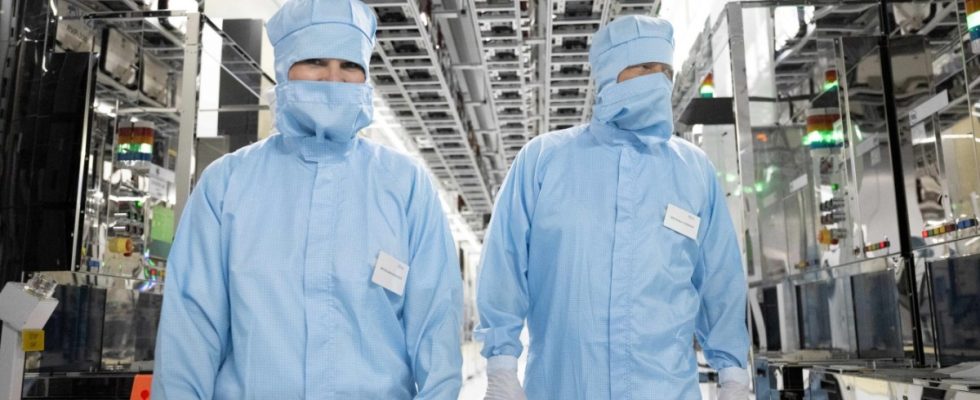Jochen Hanebeck has been managing the chip manufacturer Infineon from Neubiberg, just outside Munich, since spring 2022. “The best is yet to come,” he said last summer about the company’s prospects. Hanebeck apparently wants to prepare for the upswing. In any case, since he’s been at the top, Infineon has been announcing new billion-euro expenses. Hanebeck announced this Thursday that the group would massively increase its investments in the plant in Kulim, Malaysia. In addition, up to five billion euros should be spent on construction over the next five years.
Infineon also wants to invest five billion euros in Dresden, which the company announced just a few months ago. There should be around one billion euros of this in public funding. The locations in Villach, Austria, and in Malaysia have already been massively expanded in the recent past. There is also speculation that Infineon could also participate in the construction of a new factory for the Taiwanese group TSMC in Germany. Hanebeck has thus initiated a change of course, and that is risky. The Infineon share lost more than ten percent at times on Thursday. Hanebeck’s predecessor, Reinhard Ploss, was at least much more cautious before investing billions.
The reason: the semiconductor industry traditionally suffers from clear ups and downs. When prices are high and supply is scarce, everyone invests in new plants. When the new factories are finished after a few years, there is usually a sudden oversupply – prices go down, investments are postponed until the next bottleneck occurs. It’s the same again now: Many chip producers are currently investing in new fabrications worldwide, additionally fueled by massive government subsidy programs. The US company Intel, for example, is to receive government funding of ten billion euros for a new plant in Magdeburg.
He has been in office since last year: Infineon CEO Jochen Hanebeck.
(Photo: Annegret Hilse/Reuters)
Infineon invests anyway, also on the grounds that they produce special chips for the automotive or energy industries, where the ups and downs are not that great. According to Infineon, the world’s largest factory for so-called silicon carbide power semiconductors on 200-millimeter wafers is being built in Malaysia. These special semiconductors are more expensive and difficult to manufacture than conventional silicon chips. On the other hand, they are more powerful and efficient, for example when charging electric cars quickly or operating wind turbines.
The first customers for the new chips are already there
“With the expansion of Kulim, we are securing our leading position in this market,” said Hanebeck. The company expects the expanded plant – together with the plant in Villach – to generate annual revenues of seven billion euros. According to Infineon, the first customers for the semiconductors from the new factory have already been found: car manufacturers such as Ford, SAIC and Chery from China, but a leading Chinese photovoltaic manufacturer is also interested. In total, customer commitments totaling five billion euros and one billion euros in advance have already been received. Infineon aims to achieve a 30 percent market share in silicon carbide semiconductors by the end of the decade.
An Infineon employee in Dresden holds a disc of semiconductor material in his hands.
(Photo: JENS SCHLUETER/AFP)
Hanebeck said on Thursday that the development on the semiconductor market shows a mixed picture. “On the one hand, electromobility and renewable energies and the associated areas of application ensure a consistently high level of demand. On the other hand, demand for consumer applications such as PCs and smartphones is still low.” Other large manufacturers such as Intel or AMD are also feeling this. In the third quarter of the fiscal year up to the end of September, Infineon generated revenues of EUR 4.1 billion, one percent less than in the previous quarter. The important segment result fell by ten percent to 1.1 billion euros, after taxes Infineon earned 831 million euros, one percent more.

